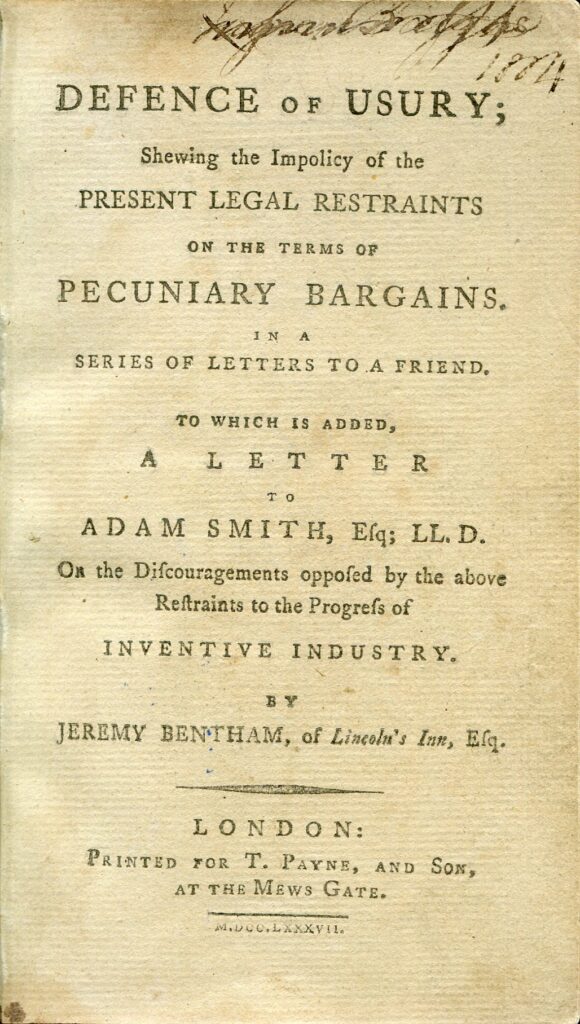‘Through the first four editions of the Wealth of Nations, Adam Smith supported state-imposed caps on the rate of interest. Much to the chagrin of many of his followers then and since, Smith thought 5 per cent was just about enough for any borrower in Great Britain to pay on a loan. In 1787, writing from the estates of the Russian Count Potempkin in the backwater of Zadobrast near Krichev in Belarus, Jeremy Bentham penned his Defence of Usury as a series of letters. From the remote periphery of the expanding industrial revolution, Bentham claimed a place for usury in Smith’s own system of economic liberties. In doing so, he explicitly sought to convince Adam Smith to give up his support for interest rate limits. But the last edition of the Wealth of Nations to appear in Smith’s lifetime, in 1789, left the usury passages unchanged. From a superficial perspective, the entire affair amounts to nothing more than a modest dispute between a failing master (Smith died in 1790) and an over-eager disciple. (Bentham acknowledged in the Defence that all he knew of political economy originated in Smith’s works.) Certainly this view is sometimes taken by those embarrassed by Smith’s support of such an aggressive intervention in financial markets. Yet the argument struck a fundamental chord. Gilbert K. Chesterton (1933), for one, identified Bentham’s essay on usury as the very beginning of the “modern world”’ (Joseph Persky, ‘Retrospectives: From Usury to Interest’, Journal of Economic Perspectives, vol. 21, no 1, 2007, p. 228).

